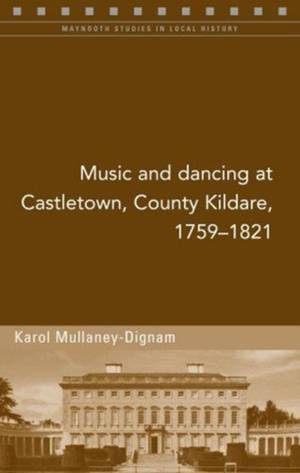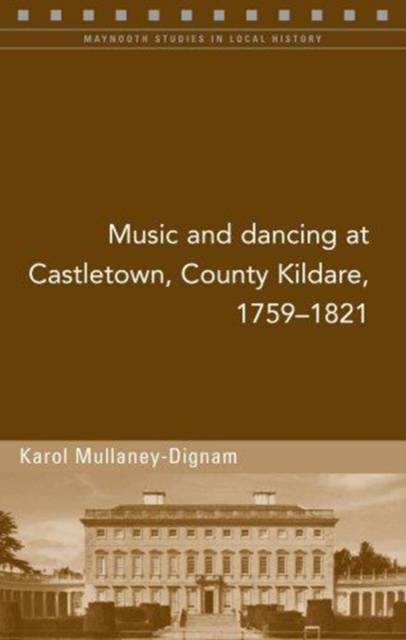
- Afhalen na 1 uur in een winkel met voorraad
- Gratis thuislevering in België vanaf € 30
- Ruim aanbod met 7 miljoen producten
- Afhalen na 1 uur in een winkel met voorraad
- Gratis thuislevering in België vanaf € 30
- Ruim aanbod met 7 miljoen producten
Zoeken
Music and Dancing at Castletown, County Kildare, 1759-1821
Karol Mullaney-Dignam
€ 13,95
+ 27 punten
Omschrijving
Ireland's Castletown - near Celbridge in Co. Kildare - was the home of the Right Honorable Thomas Conolly and his wife Lady Louisa Augusta (nee Lennox). A well-connected, high-society couple, the Conollys received invitations to the most exclusive social events in Dublin and London and were closely associated with formal social life at Dublin Castle. By the 1780s, their magnificent residence was a center of fashionable sociability in which music and dancing were significant agents. This study shows how music and dancing functioned in terms of social education: prominent music- and dancing-masters were employed and musical instruments purchased for members of the extended Conolly family. This scholarly examination of music and dancing (as aspects of domiciliary sociability), entertainment and education, provides new perspectives on the form, function, and furnishing of a Georgian country house in Ireland. It also provides a useful framework for investigating the lives of the various people who lived and worked therein. (Series: Maynooth Studies in Local History - Number 98)
Specificaties
Betrokkenen
- Auteur(s):
- Uitgeverij:
Inhoud
- Aantal bladzijden:
- 64
- Taal:
- Engels
- Reeks:
- Reeksnummer:
- nr. 98
Eigenschappen
- Productcode (EAN):
- 9781846822964
- Verschijningsdatum:
- 20/10/2011
- Uitvoering:
- Paperback
- Formaat:
- Trade paperback (VS)
- Afmetingen:
- 137 mm x 211 mm
- Gewicht:
- 90 g

Alleen bij Standaard Boekhandel
+ 27 punten op je klantenkaart van Standaard Boekhandel
Beoordelingen
We publiceren alleen reviews die voldoen aan de voorwaarden voor reviews. Bekijk onze voorwaarden voor reviews.











